Siena mattress vs Allswell mattress: which budget bed is best?
Does the Siena or Allswell provide the best bed for your buck?
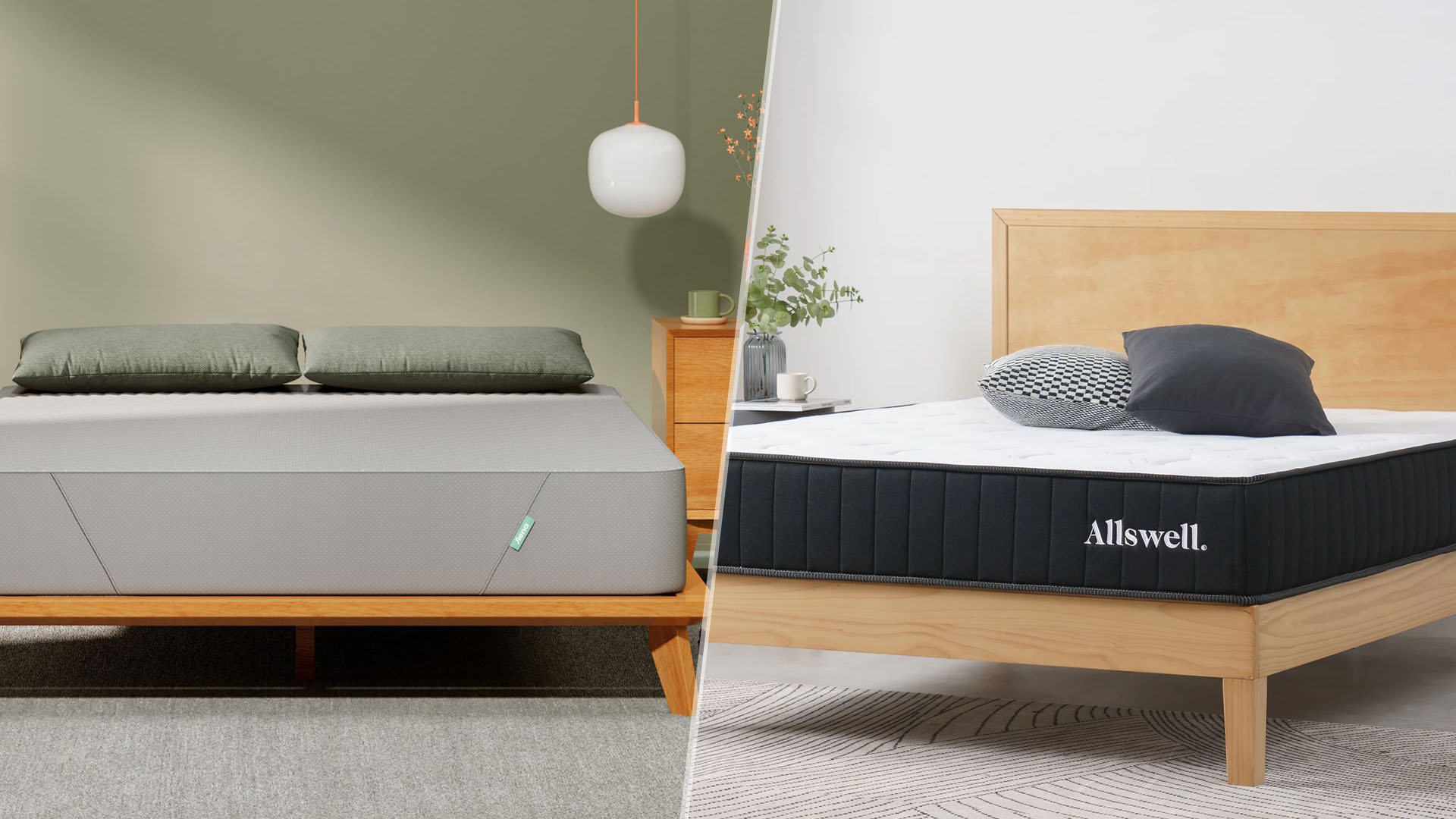
The best mattress can be an investment purchase, but if you're working with a tight budget, you should still choose a bed that delivers comfort for your sleep style. If you want a mattress that provides a good night's sleep and won't break the bank, you might have considered the Siena memory foam mattress or the Allswell hybrid mattress. They're two of the best cheap mattresses, but how do you know which one is right for you?
To start with, they're both very different beds. The Siena is a memory foam mattress, and the brand is owned by Resident Home, the parent company behind Nectar and DreamCloud (two of our favorite sleep brands). The Allswell, on the other hand, is a hybrid, meaning it combines upper layers of foam with coils, for a more traditional feel. Allswell is owned by Walmart.
We've had an opportunity to test each mattress and we were impressed with how the quality outperformed the price of both. Check out our Siena memory foam mattress review to learn our feelings on this affordable foam bed, and head to our Allswell mattress review to see how this hybrid held up. Both mattresses were tested by the same member of our team of reviewers, so you're getting a direct comparison in terms of feeling and support.
Although both mattresses won two out of four of our categories, overall, we rate the Siena the winner in this battle of the budget mattresses. It avoids the expected pitfalls of cheap memory foam, offering a supportive and cool night's sleep. However, as the mattresses are so different, we can't rule the Allswell out completely. It's a hybrid, unlike the all-foam Siena, and that spring layer gives it a different feel that some sleepers will prefer. Let's dive into our Siena vs Allswell mattress showdown.
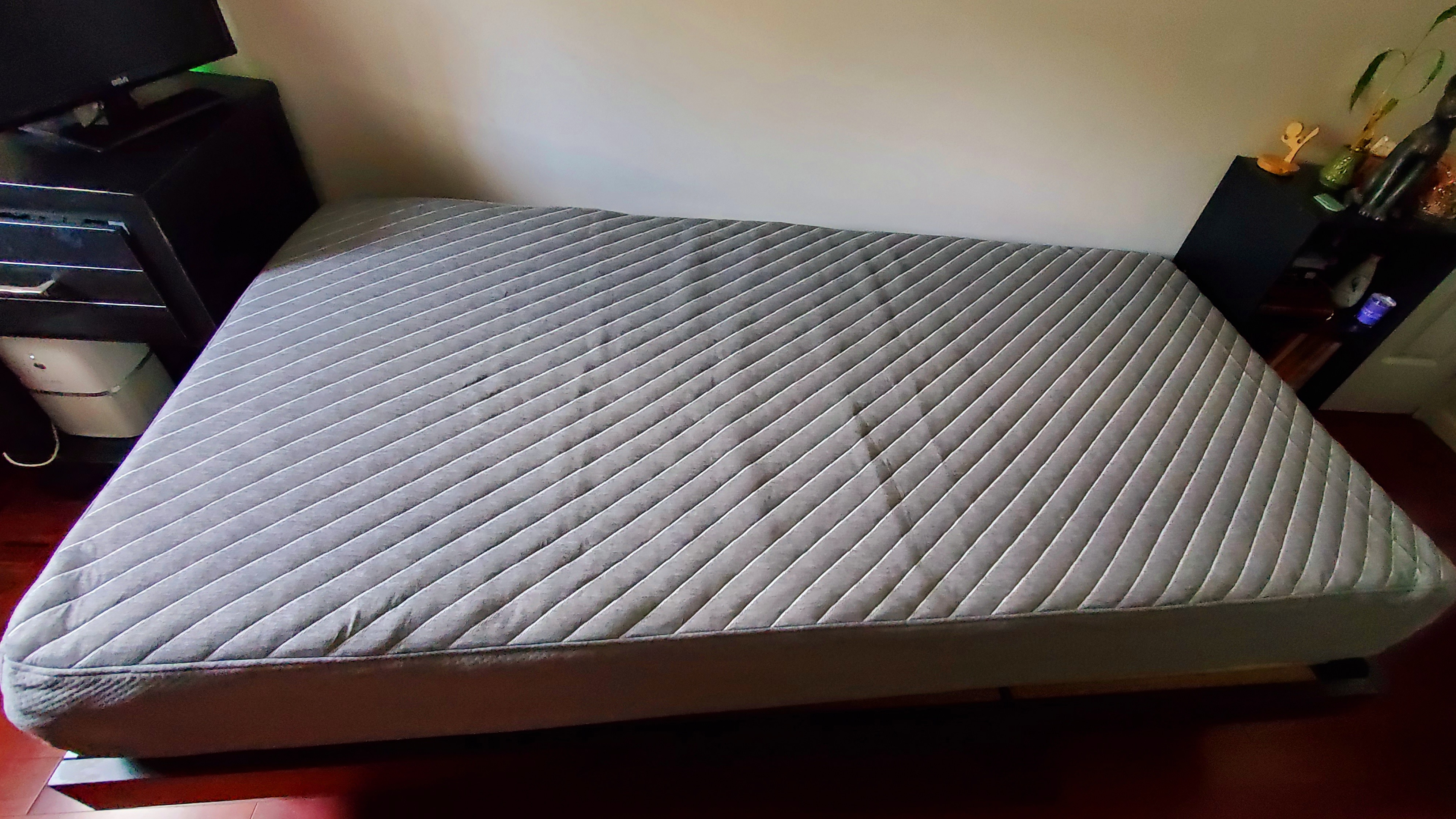
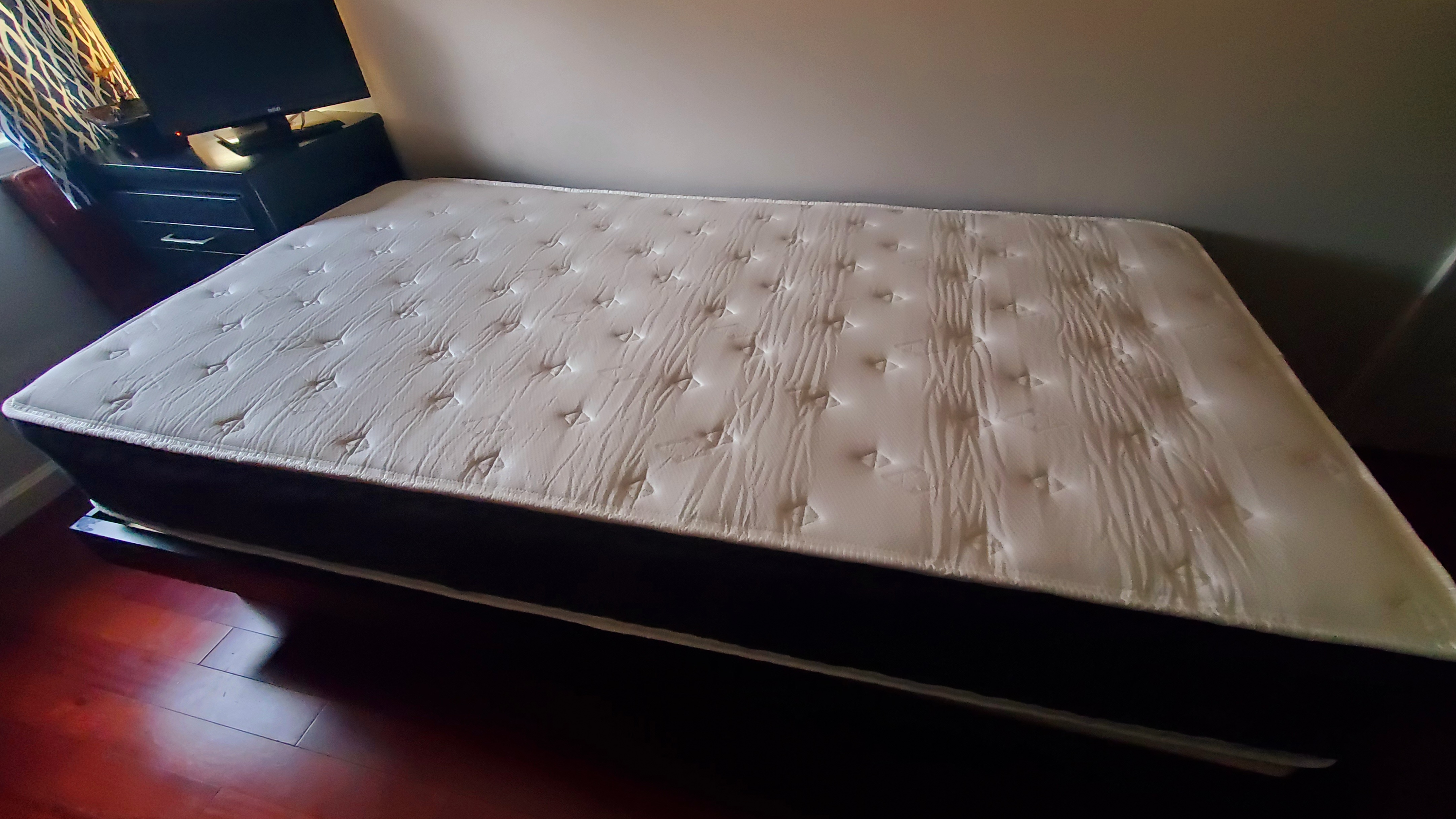
Siena vs Allswell mattress: specs
| Header Cell - Column 0 | Siena | Allswell |
|---|---|---|
| Type | All-foam | Hybrid |
| Materials | Memory foam, other foams | Memory foam, pocket coils |
| Cover | Polyblend, non-removable | Polyblend, non-removable |
| Handles | No | No |
| Firmness (1-10) | Officially 6.5, we rate 9 | Officially firm, we rate 7 |
| Height | 10 inches | 10 inches |
| Trial period | 180 nights | 90 days, in packaging |
| Warranty | 10 years | 10 years |
| Price bracket | Budget | Budget |
| Queen price | MSRP $799 (usually sold at $399) | MSRP $317 |
| Sizes | Twin, twin XL, full, queen, king, Cal king | Twin, twin XL, full, queen, king, Cal king |
| Delivery | Free | Free |
| Returns | Free | Free |
Siena vs Allswell mattress: design
- Siena is a memory foam mattress made with three foam layers
- Allswell is a hybrid, combining springs and comfort foam
- Both mattresses are 10" deep
The Siena mattress is constructed from three layers of memory foam. The top layer consists of two inches of gel-infused memory foam, designed to adapt to your form and provide contoured pressure relief. Beneath that sits four inches of a support foam. This dense foam features molded ripples, to enhance airflow and improve breathability. At the base lies four inches of durable foundation foam, providing stability to the upper layers. Finally, the soft top cover aids breathability, while the shift-resistant lower cover keeps the mattress from moving when you roll over in your sleep.
The build is similar to the Nectar memory foam mattress from fellow Resident Home brand, Nectar Sleep. You can see how those two beds compare with our Nectar vs Siena mattress guide.
The design of the Allswell is quite different to the Siena. As a hybrid mattress, it contains both layers of foam and a spring layer. The construction is pretty complex: at the top sits a layer of quilted high density foam, followed by a layer of gel-infused foam, before a layer of comfort foam. These provide cushioning intended to mold to the shape of the body. Below, you'll find the springs. Each seven-inch spring is individually wrapped – to minimize motion transfer – while the perimeter springs are reinforced to provide increased edge support.
That layer of coils plays a key role in determining how the bed feels, giving the mattress some bounce. In contrast, while the Siena doesn't have the sink-in softness of some foam mattresses, it doesn't have the movement of a spring bed, providing a stable surface to sleep on. We'll discuss how these design differences affect feel in more detail when we compare comfort below.
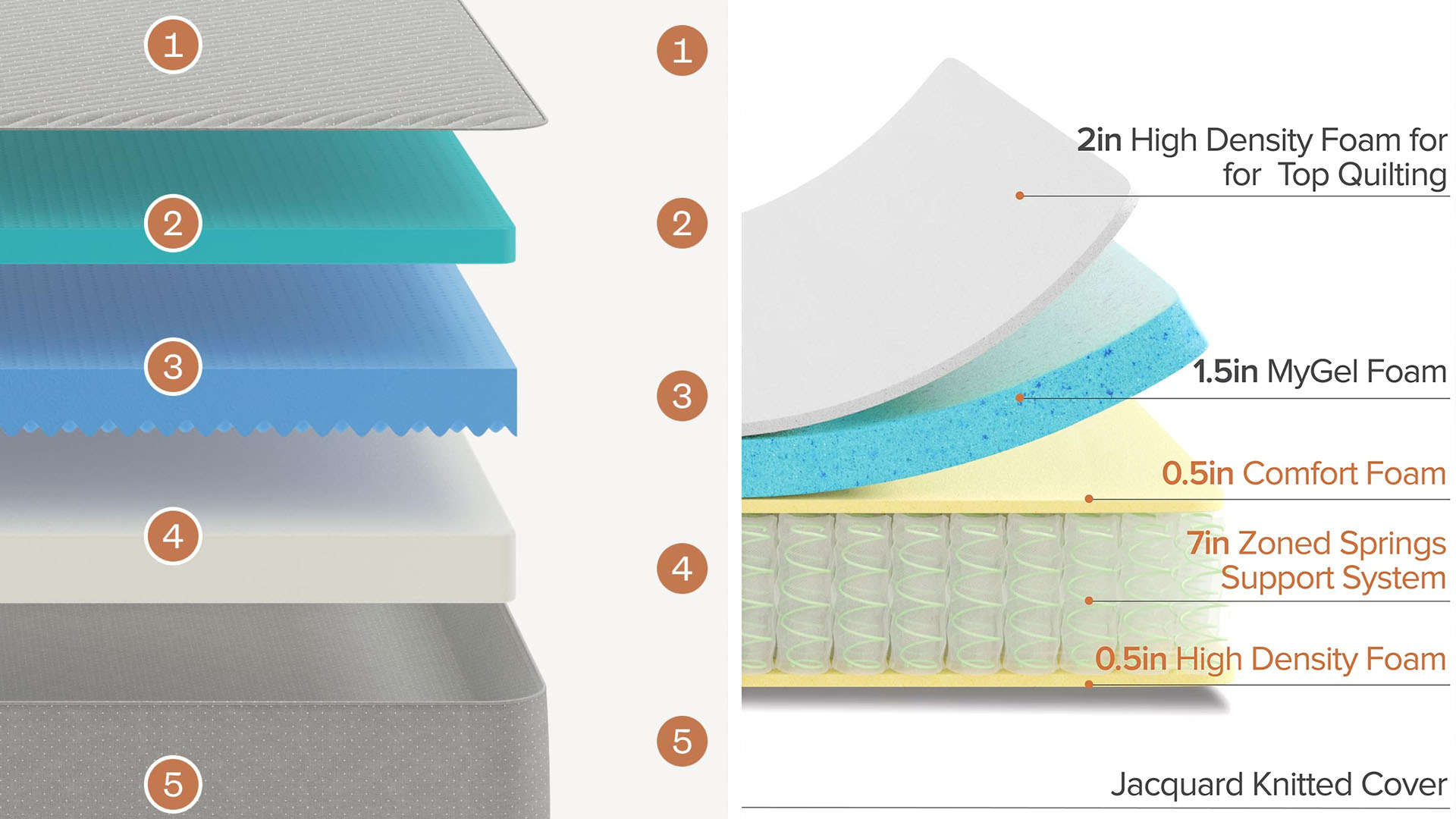
When it comes to the Allswell, there are potentially some issues concerning durability. Our reviewer found the edge support was good straight out the box, but customer reviews indicate the mattress starts to sag with frequent use.
Neither mattress comes with handles, which does make moving them tricky. It's not a dealbreaker, but worth considering if you plan on changing which room the mattress is in or moving house in the near future. However, it's also worth noting that neither mattress is that tall or heavy, making them easier to move even without handles.
While the Allswell has the more complex design, it isn't necessarily the better design. Our reviewer rated the Siena as 4/5, while giving the Allswell just 3.5/5. However, as the construction varies significantly between each bed, it might be a matter of personal preference: where do you stand in the debate of memory foam vs hybrid mattresses?
Design winner: Siena, but with a caveat
Our reviewer rated the Siena as the better design, but as both mattresses have such different construction, it might come down to personal preference.
Siena vs Allswell mattress: price & extras
- Both are budget mattresses – Allswell is usually cheaper
- Siena offers a 180-night trial and a 10-year warranty
- Allswell has a 90-day returns period for unopened mattresses
The Siena has an MSRP of $799 for a queen, but you can ignore that price. Siena runs an evergreen sale, with a queen mattress typically retailing for $399. The price rarely changes, so don't expect it to go any cheaper. However, that also means it's unlikely to become more expensive, and this is an excellent deal for the quality of bed.
The Allswell, however, is the cheaper choice, with the queen often costing around $317. This is particularly impressive when you factor in that hybrid mattresses are typically more expensive than memory foam mattresses (coils are among the most expensive mattress materials). The price can fluctuate, but while Walmart (the owner of Allswell) does run frequent mattress sales, this particular Allswell model is rarely included in the fun.
When it comes to extras, there is a clear winner: Siena. Siena offers a 180-night mattress trial, which might not be the best around, but is excellent for a budget brand. Even some of the best memory foam mattresses have shorter trials than this. In addition, each Siena mattress comes with a 10-year warranty.
The Allswell also comes with a 10-year warranty, but the trial period is disappointing. You get 90 days to make a return, but the mattress must still be in its original packaging. Not good, if you want to test the feel of the bed. If the mattress is out of its packaging, buyers are instructed to contact Walmart directly – there's no guaranty you'll get your money back.
Price winner: Allswell
The Siena might be the more expensive mattress, but you do get 180 nights to test it without commitment. The Allswell is cheaper, but the lack of trial period is a big no.
Siena vs Allswell mattress: comfort & support
- Allswell is medium-firm, we rate it 7/10
- Siena is officially rated 6.5/10, we rate it firm at 9/10
- Both mattresses are best for stomach and back sleepers
The Allswell mattress is described as 'firm', but our testers didn't quite agree, giving the Allswell an overall firmness rating of 7/10, or medium-firm. Allswell also calls the mattress 'just-right firmness', but as firmness is subjective, we have to disagree – 7/10 suits most stomach and back sleepers, while side sleepers might find it too hard at the pressure points. The Allswell has very little sink, which means pressure relief is minimal, potentially leaving side sleepers with aching shoulders and hips in the morning.
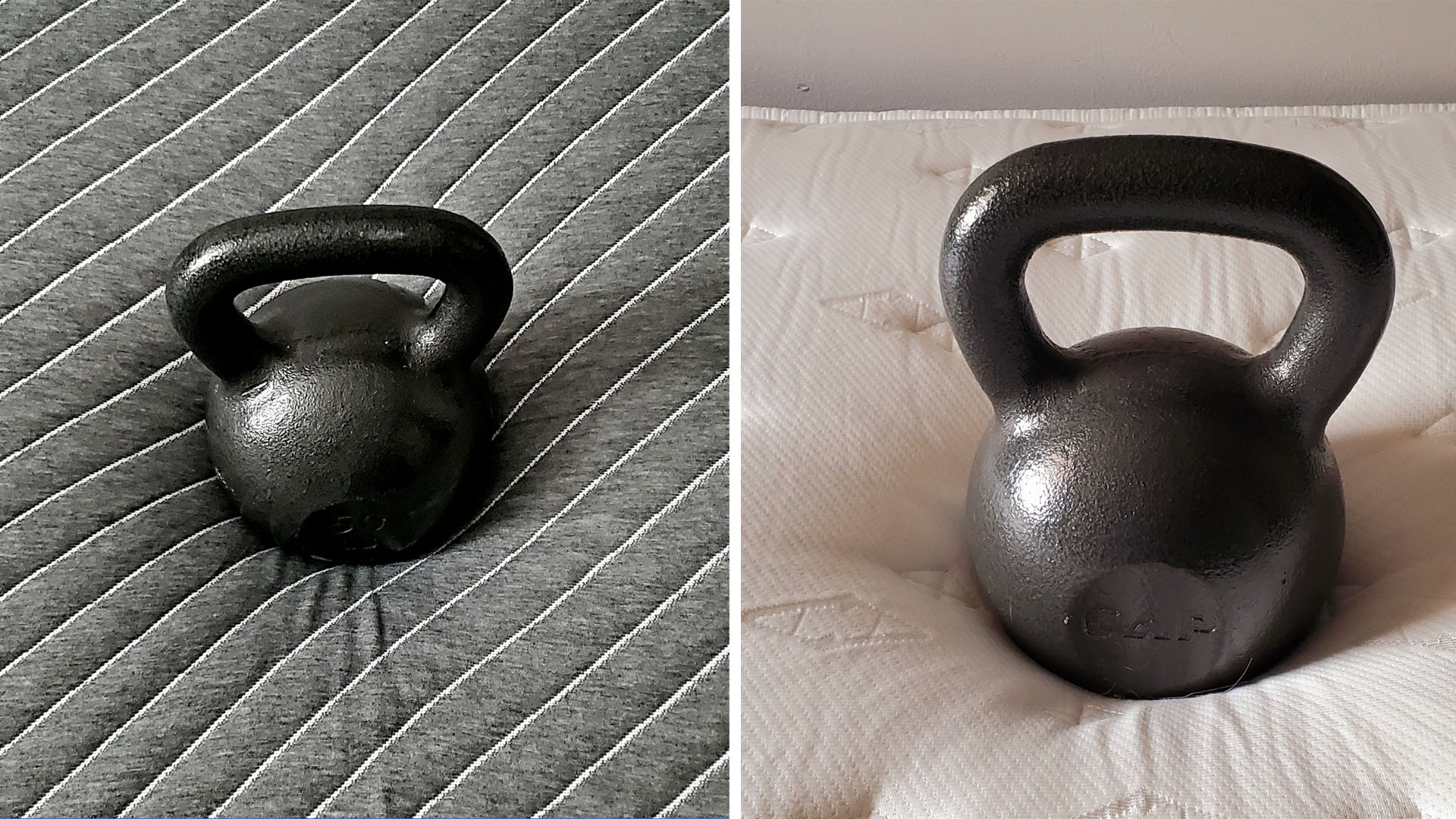
The Siena mattress is described as a 6.5, which is medium. Our reviewer, however, had a completely different experience, rating the mattress a 9/10 with almost no sink – this is a mattress you lie on top of. The unyielding foam provides limited pressure relief, meaning most side sleepers will probably find it too firm at the shoulders. However, as one of the best firm mattresses, the Siena is good for stomach sleepers and back sleepers, who need more support at the hips and lower back.
Since our review, Siena has slightly altered the construction of its memory foam mattress. The middle transition layer is now taller, while the top and base foam layers are both slightly shorter. Customer reviews appear to indicate that the mattress is now slightly softer, although expect it to still have a firmer feel than the Allswell.
Beyond firmness, the construction of the mattresses also contribute to a different feel overall. As the Allswell is a hybrid, the bulk of the design consists of coils. This gives the mattress some bounce. Although the upper layers of cushioning prevent you from lying directly on the springs, you can still feel their movement as you settle on the mattress. The Siena, on the other hand, is all-foam. While the firm build doesn't have the enveloping 'hug' you might expect from a memory foam, the top layers gently mold to the shape of your body, while the dense foam below keeps you stable and supported.
Comfort winner: Allswell
Rated 7/10 for firmness, the Allswell is more adaptable to a range of sleep styles. However, as one is a foam mattress and the other a hybrid, personal preference will contribute to which feel you prefer.
Siena vs Allswell mattress: performance
- Both mattresses offer good temperature regulation
- Both mattresses have impressive motion isolation
- Siena has better edge support, while the Allswell can sag
While hybrids are traditionally the best cooling mattresses – as the coils allow more air to circulate – both these mattresses performed well at temperature regulation. Our reviewer gave both beds 4/5, meaning they can be expected to stay an even and comfortable temperature during the night, without overheating.
Memory foam mattresses can sleep hot, but this wasn't a problem for the Siena. The middle foam layer has a ridged underside to ease airflow, while the lack of sink prevents warm air from getting trapped near the body. And the Allswell combines the natural breathability of the coils with a gel-infused top layer, to draw heat away from the body. Warm sleepers should get on well with both of these beds.
Both mattresses also performed well at motion isolation, earning 4.5/5 from our reviewer. Motion isolation refers to how much movement travels across the bed – if you sleep with a restless partner, good motion isolation will prevent you from feeling every toss and turn.
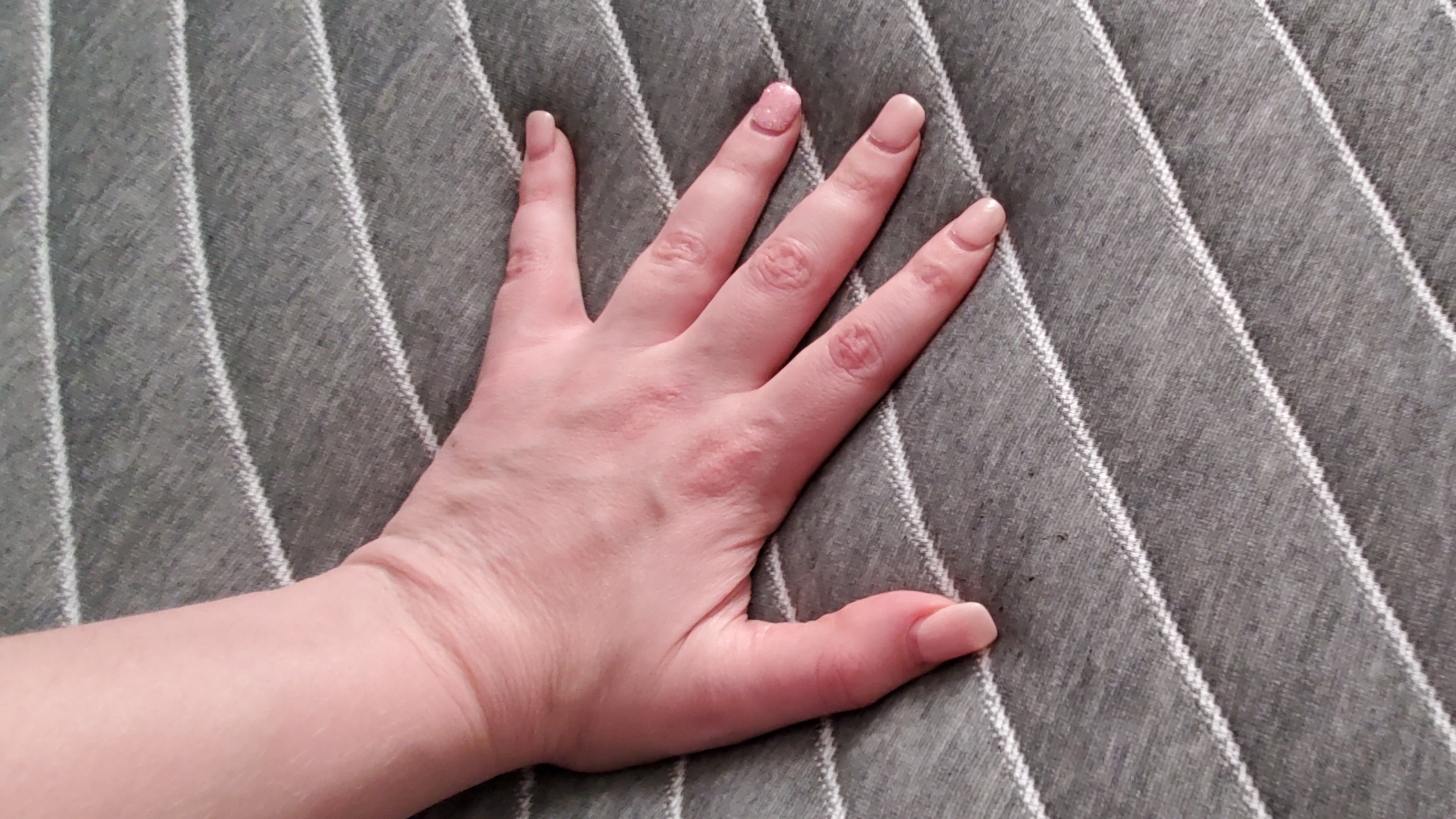
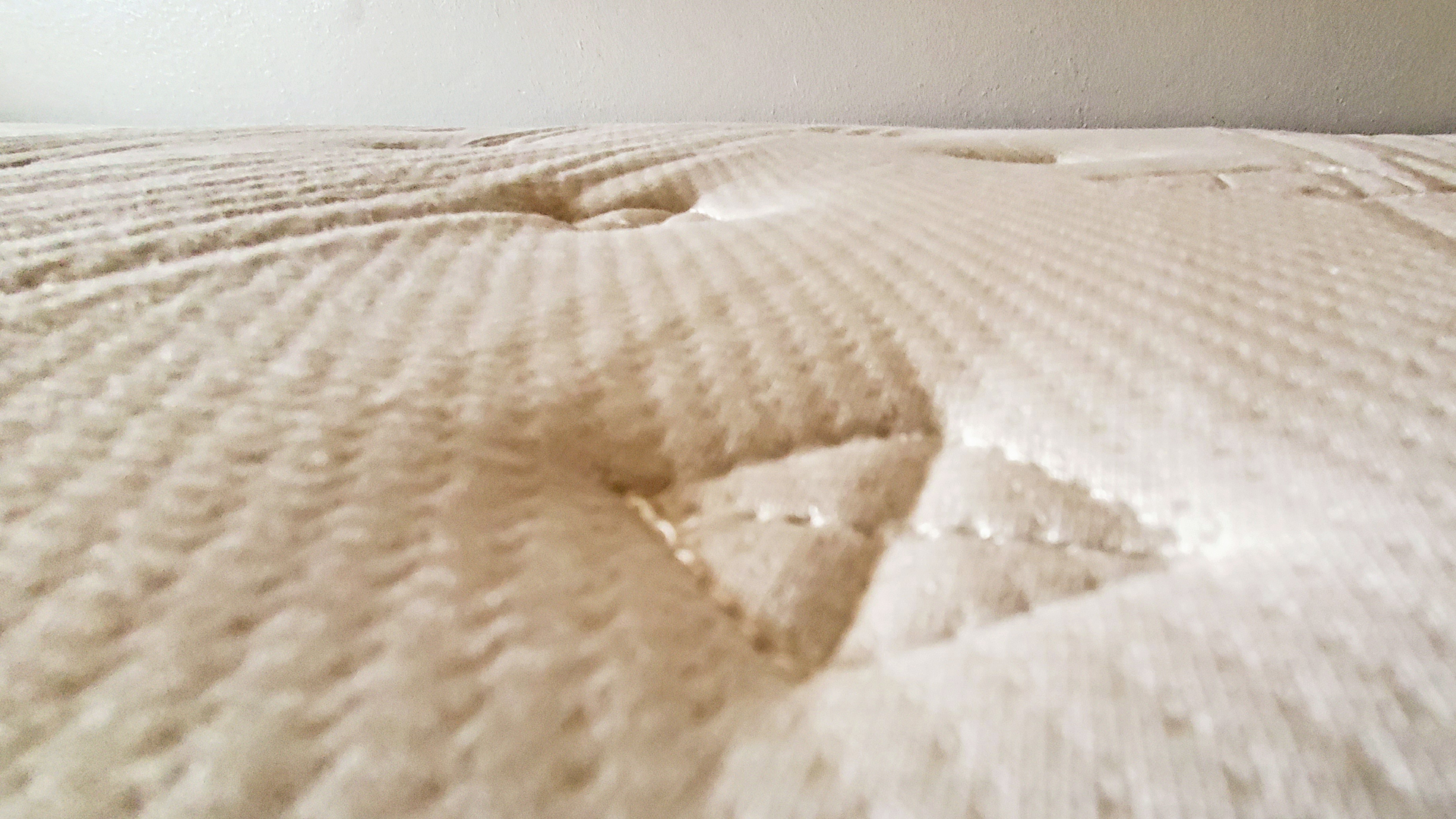
The dense foam of the Siena absorbs the majority of movement, meaning you're unlikely to be disturbed if your partner gets up in the night. And while even the best hybrid mattresses can sometimes struggle with excess movement, the Allswell uses individually wrapped coils to avoid this problem. Wrapping each coil separately means that when one coil moves, it won't send the rest of them bouncing.
The final performance factor we test for in our reviews is edge support; how supportive the mattress is around the perimeter. Here, the Siena mattress really shone. The firm foam ensured that every inch of the surface could provide excellent support. Our reviewer noted minimal compression when sitting on the edge, which is ideal for those who need to push against the mattress to get out of bed.
Our reviewer also found the Allswell delivered good edge support straight out of the box – however, customer reviews tell a different story. Many reviewers indicate that after repeated use, the edges start to sag, meaning the bed might lack some durability. Okay for a guest room, but a problem if you plan on using the mattress every night.
Performance winner: Siena
Despite drawing in both temperature regulation and motion isolation, Siena comes out on top thanks to its superior edge support.
Siena vs Allswell mattress: which should you buy?
Buy the Siena mattress if...
✅ You want a firm bed: Our reviewer gave the Siena mattress 9/10 on the firmness scale, which is unusually high for a foam bed. The Allswell, in comparison, is just a 7/10. If you want a high level of support at the hips and lower back, the firm build of the Siena is better.
✅ You use the edges of the mattress to get out of bed: With consistent firmness from the center of the mattress all the way to the perimeter, the Siena is better for those with limited mobility who need to push against the edges to get up in the morning.
✅ You want time to make your decision: The 180-night trial is already impressive for a budget mattress, but it looks particularly good next to the Allswell, which only allows returns if the mattress is still in the packaging. You'll have time to decide if the Siena is right for you, before you commit fully.
Buy the Allswell mattress if...
✅ You like a bouncier feel: As a hybrid mattress, the Allswell contains a layer of coils. These coils give the bed a bit of bounce, closer to the traditional feel of an innerspring than the stability of a dense foam.
✅ You're on a very tight budget: The Allswell is significantly cheaper than the MSRP of the Siena, and still cheaper than the Siena's evergreen discount price. And while this model rarely goes on offer, it'll still likely be the cheaper of the two.
Get daily insight, inspiration and deals in your inbox
Sign up for breaking news, reviews, opinion, top tech deals, and more.

Ruth is TechRadar’s Sleep Writer. She’s here to help you find the perfect sleep setup for your budget and personal preferences. As well as keeping a keen eye on everything that’s going on in the world of mattresses, she regularly speaks to experts to help you learn how to improve your sleep habits, whether that’s by debunking sleep myths or explaining the science behind it all. Prior to joining the TechRadar team, she wrote features and product guides for new parents hoping to get a decent night's sleep, as well as writing for a variety of online spaces.